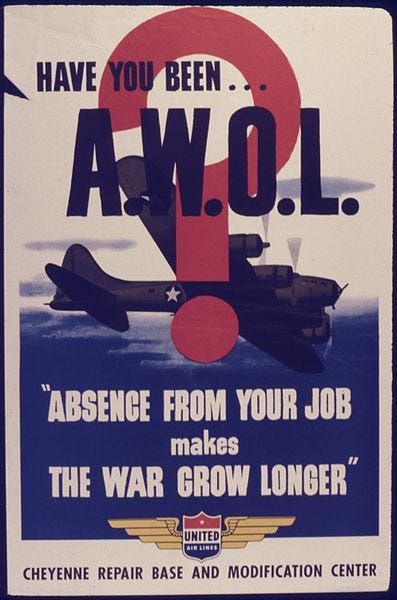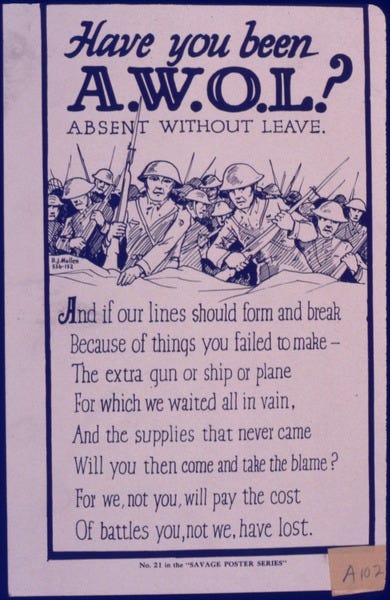Americans would make great suicide bombers. Just like young madrassa-educated men who chant Koran verses in a language they don’t even speak, the American public has blindly “supported the troops” without ever thinking critically about the necessity of continued military presence — and casualties — in Afghanistan.

The American people are largely absent without leave in the discussion of what we are trying to do in Afghanistan and the continuing use of troops in support of those objectives. It was not always so. Early on there was no doubt about why troops were going to Afghanistan. Later, one could generally be forgiven for concentrating on Iraq, the larger, more costly war. However, the last referendum on Afghanistan in American conversation was then-Senator Obama’s first Presidential campaign, in which he called Afghanistan the good war. Lone Survivor, the number one movie in the country last week, had the potential to restart the conversation and one responsible journalist attempted to do just that. Unfortunately, like the blindly indoctrinated suicide bombers we’ve become, we strapped on our vests, shouted the slogans of our respective camps and blew up in an orgy of mindless smears that destroyed any chance for a critical discussion.
The American Discourse
Immediately following September 11, 2001 such a discussion was unnecessary. After a terrorist attack on American soil that killed a total of 2,977 people in New York City, the Pentagon and Pennsylvania, Americans across the country were conscious of the reasons to use military force. Our representatives were similarly united, passing the 2001 Authorization for Use of Military Force (AUMF) with but a single nay in the House and unanimously in the Senate. Our vengeance was to be swift and sure and American troops were to be placed in harms way to punish those responsible for this terrible attack.
Since that day over 12 years ago, the public discourse of the United States has largely ignored Afghanistan except for mindless “support the troops” platitudes. Barely a year later another AUMF was signed and in March of 2003 the U.S. invaded Iraq. This was a much larger and costlier war against a more easily defined enemy (at first) and one can easily see how it occupied the minds of Americans much more than Afghanistan. Years later, during the Presidential campaigns of 2007-2008, America had another chance to talk about why we were still in Afghanistan. Indeed, Senator Obama used the war in Afghanistan to silence critics that he was soft on terrorism, proposing a surge in Afghanistan and blaming the war in Iraq for drawing resources away from the “right battlefield.” Once again, the Iraq War dominated its smaller cousin but neither war was foremost on Americans minds as they went to the polls. The economy was the overwhelming factor on which President Obama was elected in 2008. Five years and another Presidential election later (in which the war in Afghanistan was barely a blip) a movie has finally started another conversation about troops in Afghanistan. As is characteristic of the current state of consumer intellectual capital (or lack thereof) in America, the conversation quickly turned from the actual war to whether or not journalists could ask questions, as if their job is to do something else.
Jake Tapper’s Interview
Jake Tapper asked a question that needed to be asked and Marcus Luttrell responded with a warrior’s answer. The American people listened to both and reacted with all the introspection of a Soviet political commissar. After more than 12 years and over 2300 American deaths, “Is it worth it?” is a question that should have been settled long ago and periodically revisited since. This question should be asked in the broad light of day by every American, not just journalists and strategy wonks in the dark corridors of D.C. think tanks. Anybody watching Lone Survivor (which I recommend) should ask themselves how best to honor the heroics of Mike Murphy, Danny Dietz, Matt Axelson and Marcus Luttrell. If watching a single movie is the limit of your thinking on Afghanistan I don’t think you honor theirs or any other sacrifice very well at all.
A starting place for thinking about the war in Afghanistan is the national goals of our presence there. These goals have changed significantly over the years and the character of the war has changed as well. At the very least a person should be familiar with the initial goals, the counter-terrorism vs. counterinsurgency debate of the early Obama administration and the current thinking about the way forward. Are these objectives worth America’s blood and treasure? Are we accomplishing what we want to? Are there better ways to accomplish our goals? These are the questions that all Americans should ask themselves as they reflect on Lone Survivor.
The Veteran’s Answer
Was it worth it? Each veteran knows the answer to that question and each answer is individual, as public or as private as they wish to keep it. In the heat of combat warriors like Marcus Luttrell know that you are never out of the fight. Soldiers from Thermopylae, Ia Drang and Operation Red Wings know that no situation is ever hopeless and that “luck often enough, will save a man, if his courage hold.”
Aside from combat, where you fight for your brothers “with a full heart,” each veteran is in Afghanistan for different, personal reasons. Perhaps military service is a family legacy that they carry out with pride. Perhaps they joined for the college assistance and GI Bill benefits, or to have a steady job with advancement opportunities during a bad economy, or to help other people and the Peace Corps wasn’t their style. Whatever the reason, a veteran’s sacrifice is made for reason only that veteran understands and is distinct from the questions above that deserve to be answered by the American people.
The American People’s Answer
The American people have yet to articulate an answer to these questions. Are we accomplishing our national goals? Are these goals worthy of sending troops into harms way? These are questions that every American in a nation at war should be capable of answering for two reasons. First, wars a national effort. Americans as a whole have expended relatively little effort in this war, with less than 1% fighting overseas and the rest financing the effort on their credit card. Second, knowing the answers to those questions brings you closer to true support of the troops. A supportive pat on the back means more from someone who understands that war than as a reflexive statement of dogma. A knowledgeable call to end the war can be respected much more than a head-in-the-sand “wars are bad” refrain. Knowing the answers to these questions does much more to support the troops than any car magnet.
The answers will be different for each person no matter where you lean on the political spectrum. Therefore it is important to understand that you can have any position on the war without disrespecting the servicemen and women who fight it. Just as firefighters are not responsible for the fire they fight, the troops did not start the war in Afghanistan. The American people did, as a response to the terrorist attacks on September 11, 2001 and the American people are responsible for continuing the war for 13 long years. As an American, your representatives started and continued to fan the flames of this fire. Your troops are simply the firefighters who manage it. The American people — no matter where they fall on the war — honor the troops more by actually caring about the war more than they care about Justin Bieber mugshots.
The Way Forward
Have you been AWOL? (Wikimedia Commons)
Moving forward on Afghanistan is simple, and requires no great intellectual capital, though it does require the American discourse to grow up. Learn about Afghanistan. It’s a complicated area of the world that can be called a country only in the loosest sense of the term. As mentioned earlier, figure out why we are still there and decide for yourself if that requires commitment of troops. Only then can you participate in an informed national debate.
Informed and debate are the key words. Debates are healthy and necessary for democracy. Also important to remember is that “everyone can have their own opinions, but not their own facts.” It is crucial that those participating must be open to new ideas and outcomes. Often the best solution will be a combination of ideas. Finally, every American needs to remember that we live in a democracy. Sending troops to fight and die needs to become an electoral issue again. Instead of judging your politicians by the party affiliation they claim, judge them instead by the blood they would or would not spill and why. Remember, your troops are the firefighters, but you, the American people, started the fire. Was it worth it?

No comments:
Post a Comment